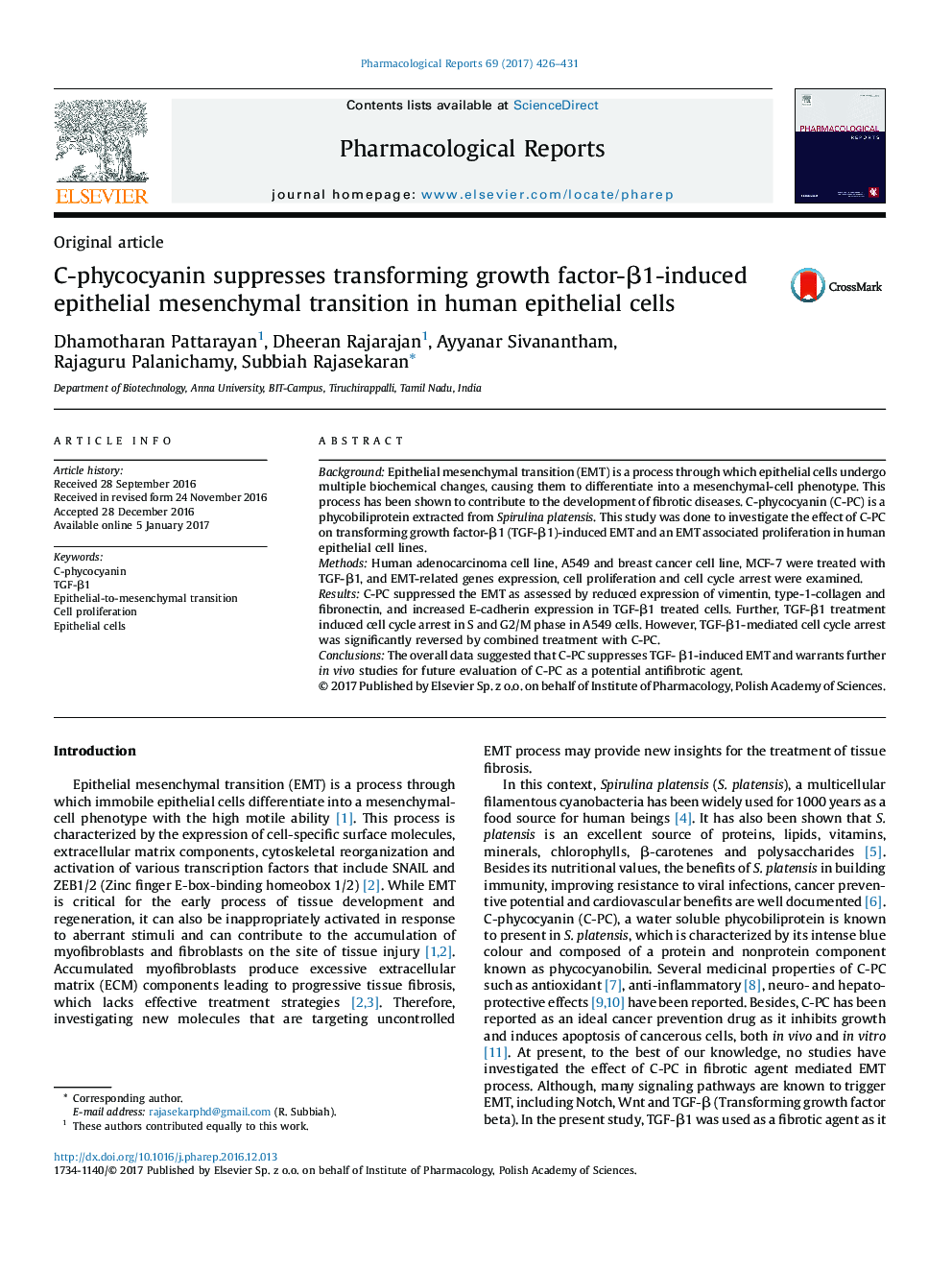| Article ID | Journal | Published Year | Pages | File Type |
|---|---|---|---|---|
| 5515065 | Pharmacological Reports | 2017 | 6 Pages |
BackgroundEpithelial mesenchymal transition (EMT) is a process through which epithelial cells undergo multiple biochemical changes, causing them to differentiate into a mesenchymal-cell phenotype. This process has been shown to contribute to the development of fibrotic diseases. C-phycocyanin (C-PC) is a phycobiliprotein extracted from Spirulina platensis. This study was done to investigate the effect of C-PC on transforming growth factor-β1 (TGF-β1)-induced EMT and an EMT associated proliferation in human epithelial cell lines.MethodsHuman adenocarcinoma cell line, A549 and breast cancer cell line, MCF-7 were treated with TGF-β1, and EMT-related genes expression, cell proliferation and cell cycle arrest were examined.ResultsC-PC suppressed the EMT as assessed by reduced expression of vimentin, type-1-collagen and fibronectin, and increased E-cadherin expression in TGF-β1 treated cells. Further, TGF-β1 treatment induced cell cycle arrest in S and G2/M phase in A549 cells. However, TGF-β1-mediated cell cycle arrest was significantly reversed by combined treatment with C-PC.ConclusionsThe overall data suggested that C-PC suppresses TGF- β1-induced EMT and warrants further in vivo studies for future evaluation of C-PC as a potential antifibrotic agent.
